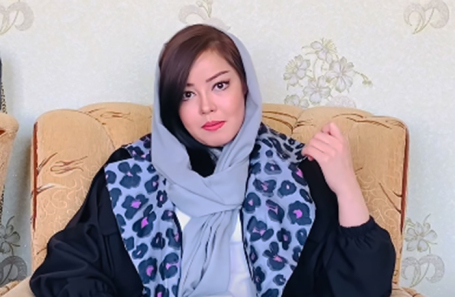Journalist Cobra Hassani, who fled from Afghanistan in 2021 due to the Taliban coming to power, was convicted in 2022 for illegally crossing the Russian border. The Russian Ministry of Internal Affairs did not see any reason to grant the journalist political asylum, which she had requested

What was the outcome of the story of the Afghan journalist who accidentally ended up in Russia? We are talking about Cobra Hassani, who was convicted in 2022 for illegally crossing the Russian border. The trial of the journalist lasted from the autumn of 2023 to February 2024. Cobra was not granted political asylum in Russia and was even facing deportation to Afghanistan, where she could face the death penalty. But everything turned out differently.
Cobra Hassani is 27 years old. She spent almost her entire life in Afghanistan. As reported by various media outlets, she received her education there, engaged in social activities, including fighting for women’s rights, worked in television, and even managed her own restaurant, where she promoted a culture of reading. At the same time, Hassani openly opposed the “Taliban” movement, which is recognized as a terrorist organization and banned in Russia. Therefore, after their rise to power in 2021, she criticized the new regime and decided to leave Afghanistan.
Initially, she left for Tajikistan, then to Ukraine, where she enrolled in university. But after the start of military actions in 2022, she decided to flee to Europe. Acquaintances shared contacts of smugglers with Hassani, who, as claimed by her defense, deceived the journalist and brought her to Russia. She was detained in May at the entrance to the Big Port in St. Petersburg, from where she planned to sail to Europe. She was accused of attempting to illegally cross the border. Hassani was sent to pre-trial detention, where she spent about a year, after which she was transferred to the Temporary Detention Center for Foreign Citizens. She stayed there for nine months, although the law sets a maximum stay of only six months.
In June 2023, the case against the girl was transferred to the Kirovsky District Court of St. Petersburg. The trial itself lasted from October. According to the Criminal Code, illegal border crossing carries a maximum penalty of six years in prison. The prosecution requested three years in jail.
Even before the trial, Hassani’s lawyers sent a request to the migration service for temporary political asylum for her in Russia. However, the response came only in January of this year due to the ongoing criminal case. The response was negative. The court itself sentenced the girl to two years in prison. Considering her time spent in detention, she had already served her sentence. Therefore, the only threat to her was deportation to her homeland, despite the fact that Hassani’s lawyers had repeatedly stated that she could face the death penalty in Afghanistan. They filed an appeal, after which the court overturned the deportation decision and released her.
Why was Hassani denied asylum? Honorary lawyer of Russia, author of the eponymous Telegram channel Alexey Sklyarenko comments:
It turns out that the girl, together with her lawyers, could indeed have applied to the migration service not only with a request but also with evidence of why she needed political asylum. But she did not need it – she wanted to leave Russia. And that didn’t work out either. According to her lawyers, several months after the verdict, Hassani could not leave Russia: the travel ban was in effect until she received a court decision in her native language.
On June 25, the final hearing on the appeal took place, after which Cobra Hassani flew to Kabul. Her lawyer noted that she could have gone many places, including Europe. But it all required effort, time, and money. The Afghan diaspora in St. Petersburg also helped the girl to travel safely in any direction. According to their representative, other countries she wanted to go to were not ready to accept her.
The next morning, the journalist was already back in her homeland, where she was met by her father. The head of the Afghan diaspora told Fontanka that the girl was fine. He also mentioned that they had been working with Hassani for a long time – explaining to her that there was no danger for her in her homeland. Moreover, if she wanted to return to Russia, the diaspora would issue her an official invitation. But will she want to?


